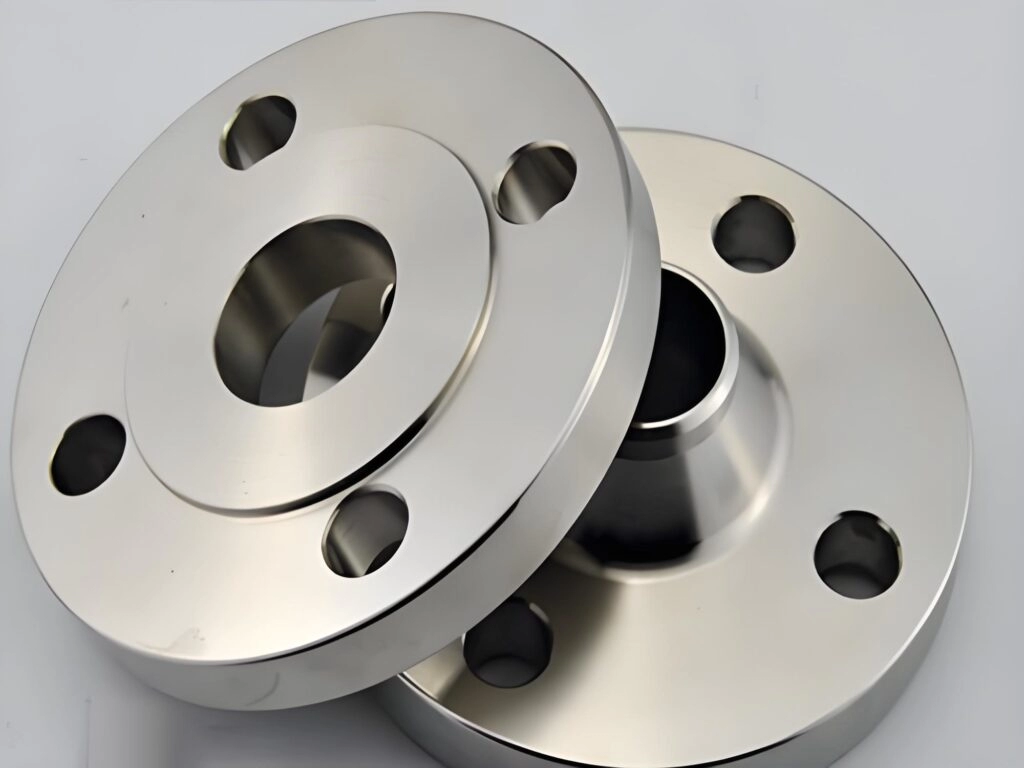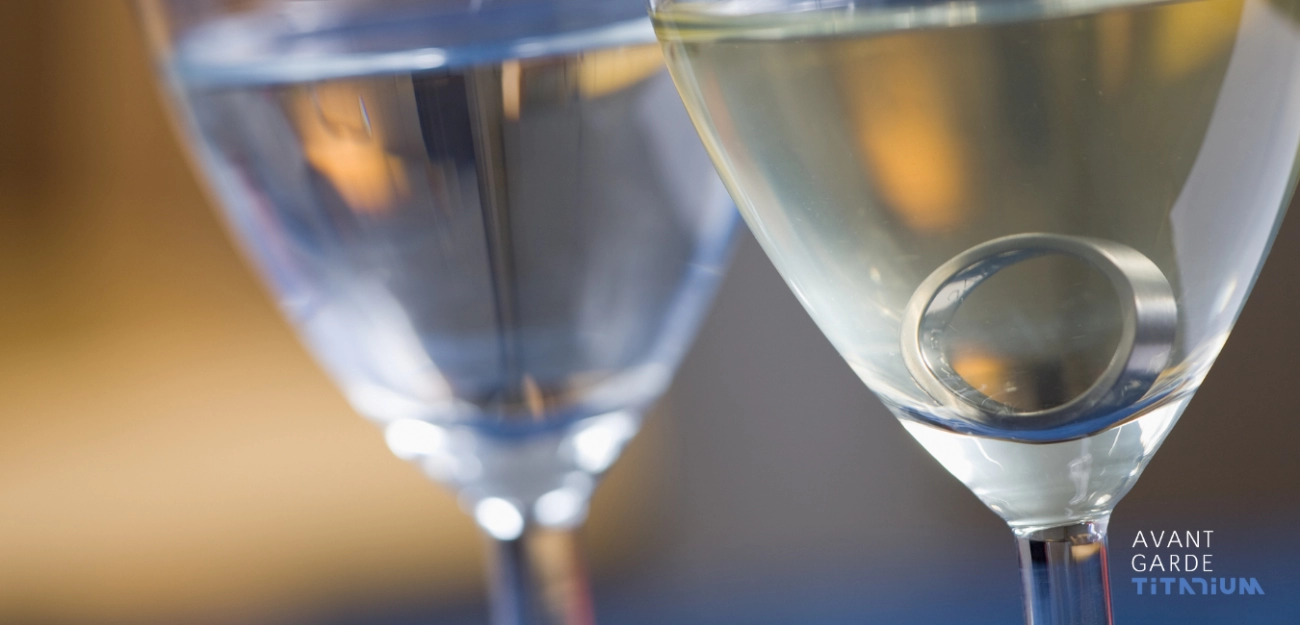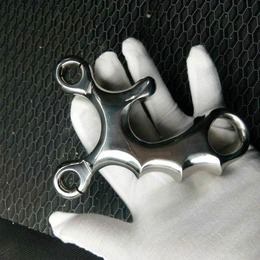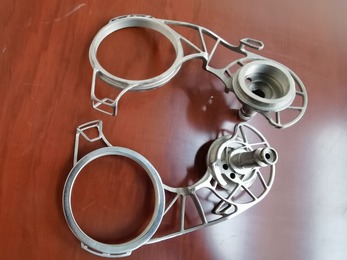Discover why pure titanium does not rust thanks to its self-healing oxide layer and learn how it outperforms other metals in corrosion resistance.
What Is Rust and Why Does Titanium Defy It
Rust is the common term for iron oxide, a reddish-brown flaky coating that forms when iron or steel reacts with oxygen and moisture. This process, called corrosion, weakens metals, causing them to deteriorate over time. But does titanium rust like iron? Simply put, no. Titanium defies rust thanks to a unique chemical defense.
Most everyday metals, such as iron and steel, corrode because their atoms react with water and oxygen to form rust. This reaction compromises the metal’s structure and appearance, leading to costly repairs and replacements. Titanium’s secret weapon is its passive oxide layer, a thin but incredibly durable film of titanium oxide. This layer forms spontaneously when titanium meets air or water, instantly protecting the metal underneath.
Unlike rust, this titanium oxide layer is stable, tightly bonded, and self-healing. If scratched or damaged, it quickly reforms, shielding titanium from corrosion in most environments. This remarkable corrosion resistance makes titanium a standout among metals, especially for applications where strength and longevity matter.
Real World Scenarios When and Where Titanium Stays Rust Free

Titanium’s reputation for resisting rust isn’t just hype. In everyday life, it handles water, salt, and humidity better than most metals. Whether you’re wearing titanium jewelry at the beach or riding a titanium bike frame in rainy weather, it won’t corrode like stainless steel or iron. The titanium oxide layer naturally protects it, even in salty or humid air.
In harsher conditions, like exposure to acids or chemicals, titanium still holds up impressively. That’s why it’s used in medical instruments and marine grade titanium alloys for boats—where corrosion resistance really matters. It can also withstand high temperatures without breaking down, making it a go-to for industrial uses.
What about scratches or dents? Thanks to its self-healing titanium oxide layer, minor scratches don’t usually expose the metal underneath. The oxide layer quickly reforms, keeping rust and corrosion at bay. So, even with some wear and tear, titanium stays rust free and reliable in the long run.
Titanium Alloys vs Pure Titanium Spotting the Differences in Rust Resistance

Pure Titanium The Gold Standard
Pure titanium is known for its outstanding rust resistance. Its natural titanium oxide layer forms quickly on the surface, which protects it from corrosion and keeps it from rusting—even in tough conditions like saltwater or high humidity. Because of this self-healing titanium oxide layer, pure titanium is often considered the gold standard for corrosion-resistant metals in the U.S. Whether it’s used in medical implants or high-end jewelry, pure titanium stays rust-free for the long haul.
Common Alloys and Their Trade Offs
Most titanium products you find, like bike frames or marine gear, are made from titanium alloys. These alloys mix titanium with small amounts of metals like aluminum or vanadium to boost strength and durability. While these alloys usually maintain good corrosion resistance, they generally don’t match pure titanium’s rust-proof abilities perfectly.
- Marine grade titanium alloys are specially designed to withstand saltwater corrosion but may still require some maintenance over time.
- Some alloys might be less acid resistant or lose corrosion resistance at very high temperatures compared to pure titanium.
In the U.S. market, understanding these differences helps you choose the right titanium product depending on your needs—whether you want maximum rust resistance or better mechanical strength in harsh environments.
Titanium vs Other Metals Why It Wins the Rust Battle
When it comes to rust resistance, titanium stands out compared to common metals like steel and aluminum. Unlike steel, which can easily rust when exposed to water, salt, or humidity, titanium is much more corrosion resistant. That’s because titanium naturally forms a tough titanium oxide layer on its surface, acting like a shield against rust and corrosion. Even stainless steel, known for its rust resistance, can still corrode under certain conditions, especially with saltwater exposure. But titanium holds up better in those tough environments.
Here’s why titanium wins the rust battle:
- Self-healing surface: If the oxide layer gets scratched, it quickly reforms, protecting the metal underneath.
- Marine grade titanium alloys: These are built for salty, humid conditions and don’t rust like steel or even some aluminum alloys.
- Acid resistant properties: Titanium resists acids and chemicals that would corrode other metals.
- High temperature durability: It maintains its strength and rust resistance even in heat, unlike many metals.
For everyday use in the U.S., especially near coastal areas or in humid climates, titanium offers peace of mind. Whether it’s your bike frame, jewelry, or tools, titanium keeps looking good without worrying about rust spots or corrosion damage. This makes titanium a smart choice when you want metal that lasts longer with less care compared to other metals prone to rust.
Maintenance and Care Keeping Your Titanium Pristine

Titanium is tough and corrosion resistant, but keeping it looking its best still takes a bit of care. Here are some simple tips to maintain your titanium products and ensure they stay rust-free and shiny:
- Clean regularly: Use mild soap and warm water to wash off dirt, salt, or sweat. This is especially important for titanium jewelry or bike frames exposed to sweat or saltwater.
- Avoid harsh chemicals: While titanium handles acids and most chemicals well, strong cleaners or bleach can damage the surface over time.
- Dry thoroughly: After cleaning or exposure to water, dry your titanium items completely to prevent any chance of surface buildup.
- Handle scratches carefully: Titanium has a self-healing titanium oxide layer that repairs minor scratches on its own. For deeper scratches, polishing with a soft cloth or professional help can restore its smooth surface.
- Store properly: Keep titanium jewelry or tools in a dry place, away from moisture and corrosive materials.
Following these maintenance steps lets you enjoy titanium’s corrosion resistant metals benefits for years without worrying about rust. Whether it’s a marine grade titanium alloy piece or pure titanium gear, simple upkeep makes all the difference.
Applications Spotlight Where Titanium No Rust Power Shines
Titanium’s resistance to rust makes it a top choice across many industries here in the U.S. Whether you’re dealing with salty coastal air or tough working conditions, titanium holds up where other metals fall short. Here are some key places where titanium’s no rust power really stands out:
- Marine Gear and EquipmentMarine grade titanium alloys resist saltwater corrosion better than stainless steel or aluminum. That’s why it’s common in boat parts, underwater cameras, and diving gear. If you live near the coast or enjoy water sports, titanium gear lasts longer and needs less maintenance.
- Medical Devices and ImplantsTitanium is widely used in medical implants like hip replacements and dental screws because it doesn’t corrode inside the body. Its biocompatible nature and corrosion resistance prevent inflammatory reactions, making it the go-to metal for safe, long-term implants.
- Aerospace and AviationHigh temperature titanium durability makes it ideal for jet engines and aircraft frames. It handles heat, pressure, and corrosion from fuel and weather without rusting, keeping planes safe and reliable.
- Jewelry and WatchesTitanium jewelry resists scratches and rust even when exposed to sweat, saltwater, or daily wear. If you want jewelry that stays looking new without constant upkeep, titanium is a reliable, rust-free choice.
- Sports Equipment and Bike FramesLightweight and corrosion resistant, titanium bike frames last longer in all kinds of weather. Cyclists appreciate the no rust quality, especially during humid summers or rainy rides.
- Industrial Chemical ApplicationsThanks to acid resistant titanium properties, it’s used in chemical processing plants where harsh acids and chemicals are common. Titanium piping and equipment maintain integrity without rusting or breaking down.
In every application, titanium’s passive oxide layer creates a protective barrier that keeps rust at bay. This makes it one of the most corrosion resistant metals you can buy, especially important for everyday use and long-term durability in the United States climate and industry needs.

